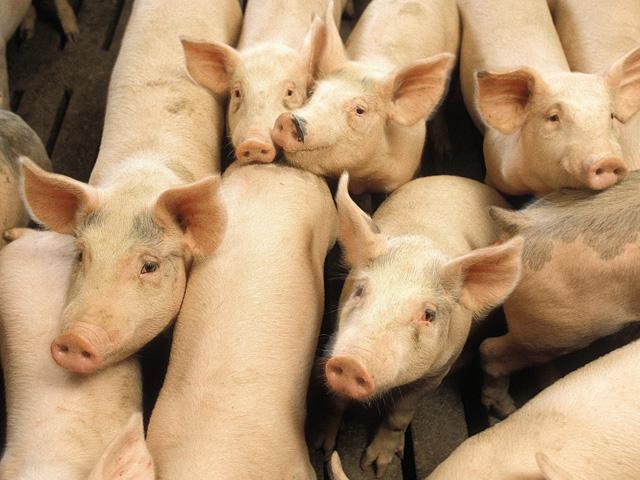US Steps Up African Swine Fever Efforts
Early US African Swine Fever Spread Prevention Focuses on Puerto Rico
LINCOLN, Neb. (DTN) -- With African swine fever identified in hogs in the Western Hemisphere for the first time in nearly 40 years, a USDA official said on Tuesday the agency is stepping up efforts in the Caribbean to prevent its spread to the mainland U.S.
USDA announced on July 29 that pigs in the Dominican Republic tested positive for the disease that has no vaccine or cure. A USDA official said the U.S. is trying to accelerate efforts to eradicate feral hogs in Puerto Rico and to expand testing efforts in Haiti and the Dominican Republic.
Haiti is expected to soon request testing help from the U.S., Rosemary Sifford, administrator for veterinary services at USDA's Animal and Plant Health Inspection Service, said during a Pork Checkoff-sponsored Zoom call on ASF response and spread-prevention efforts.
In addition, Sifford said USDA is working to add staff and additional resources in Puerto Rico with the idea of achieving "significant increases in the number of feral swine moved away, taken out of the landscape in the coming days and weeks." A six-year program is already underway in Puerto Rico to eliminate feral hogs.
ASF is a highly contagious and deadly swine disease that affects both farm-raised and feral pigs. The disease doesn't infect people but is passed from pig to pig through direct contact with bodily fluids from an infected pig.
The practice of feeding uncooked food waste to pigs also can transmit the virus if food waste contains contaminated pork products.
Sifford said USDA was looking at states that allow garbage feeding, including Puerto Rico, making sure federal requirements on heating garbage food to swine are being followed.
TRACKING ASF
As of Tuesday, Sifford said, U.S. officials were not sure how ASF ended up in the Dominican Republic.
P[L1] D[0x0] M[300x250] OOP[F] ADUNIT[] T[]
"The Dominican Republic shares the island with Haiti," Sifford said. "The Dominican Republic does have ports of entry at which international garbage is offloaded" and there continues to be "lots of inter-island traffic, some of which may be regulated and some of which may not be."
John Sagle, deputy executive director of U.S. Customs and Border Protection, said while the exact cause of ASF in the Dominican Republic is unknown, it doesn't change efforts to keep the disease out of the U.S.
"So, it could be any number of those things: It could have been content; it could have been purged stores from a vessel," he said.
Sifford said the U.S. has had a surveillance cooperative with the Dominican Republic since 2019. It was initiated as part of an overall strategy to ensure the safety of pork and pork producers in the U.S.
"The original intent had been to expand that testing beyond the Dominican Republic to other countries in the Caribbean," she said.
"That has been dramatically slowed down to this point due to the COVID pandemic. But, obviously, we now have an opportunity probably to try our efforts again at continuing to expand that surveillance."
ASF was eradicated from Haiti and the Dominican Republic in the late 1970s and early 1980s.
"It has not been identified in Haiti at this point," Sifford said.
Both USDA and Customs and Border Protection are trying to make sure ships and airplanes traveling internationally into the U.S. have proper garbage food waste disposal.
Sifford said that because there's a lot of travel between the Dominican Republic and Puerto Rico, efforts are being made to step up mitigation efforts. Many Caribbean countries have been dealing with classical swine fever for years, giving officials an advantage in preventing the spread of ASF from the Dominican Republic.
"So, really, looking to just build upon what we have in place there for classical swine fever, we are focusing on boat traffic, including inter-island commuter traffic and cruise ships, as well as passenger cargo and mail screening," she said.
If ASF is detected on the U.S. mainland, Sifford said, "We would strongly consider implementing a national 72-hour movement standstill" on swine shipments during which time officials would watch for any other signs of the disease.
U.S. Wildlife Services is continuing surveillance testing on pigs in Puerto Rico and will next focus on similar efforts in Florida, Sifford said.
The Pork Checkoff is encouraging U.S. hog producers to continue to monitor for ASF signs in their pigs and to report any signs to authorities. In addition, producers should look for ways to enhance biosecurity on their farms.
ASF symptoms are similar to classical swine fever symptoms, including fever, listless pigs, lack of appetite, red skin, bloody diarrhea and vomiting.
"The real key to biosecurity is that if you properly practice really good biosecurity all the time, it gives you the opportunity to protect yourself from a wide variety of potential risks," Sifford said.
"It's just important to not lose our edge when it comes to biosecurity and not become complacent. And so, you know, in this case, we're encouraging everybody to step up, and we feel like we've put forward a lot of enhancements to mitigations that have been in place."
For more DTN coverage, see "ASF in Dominican Republic" here: https://www.dtnpf.com/….
Todd Neeley can be reached at todd.neeley@dtn.com
Follow him on Twitter @DTNeeley
(c) Copyright 2021 DTN, LLC. All rights reserved.




